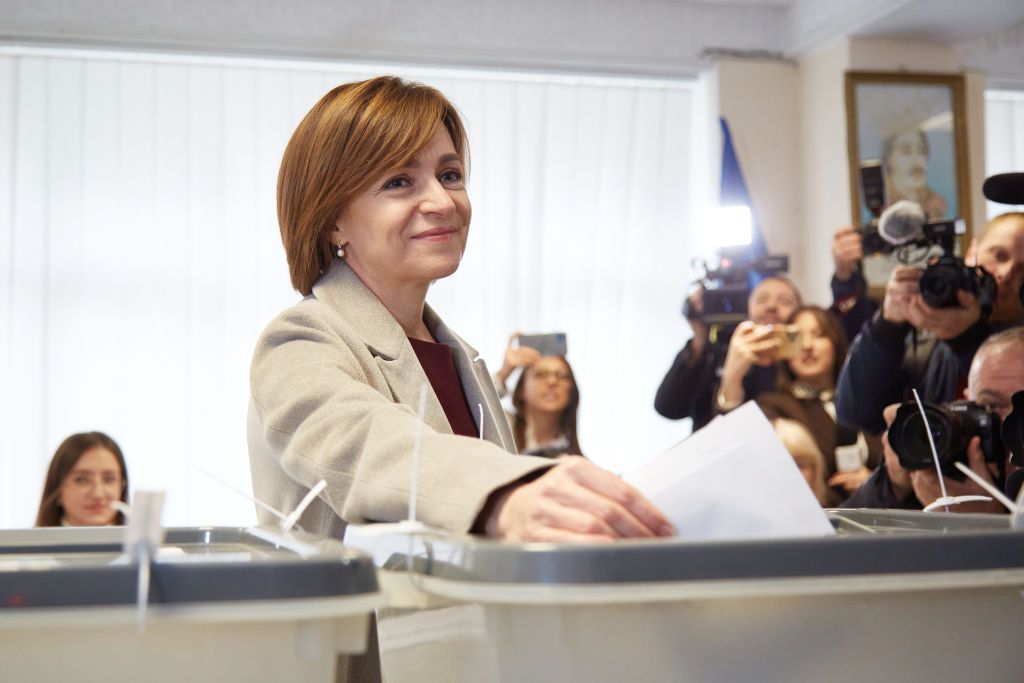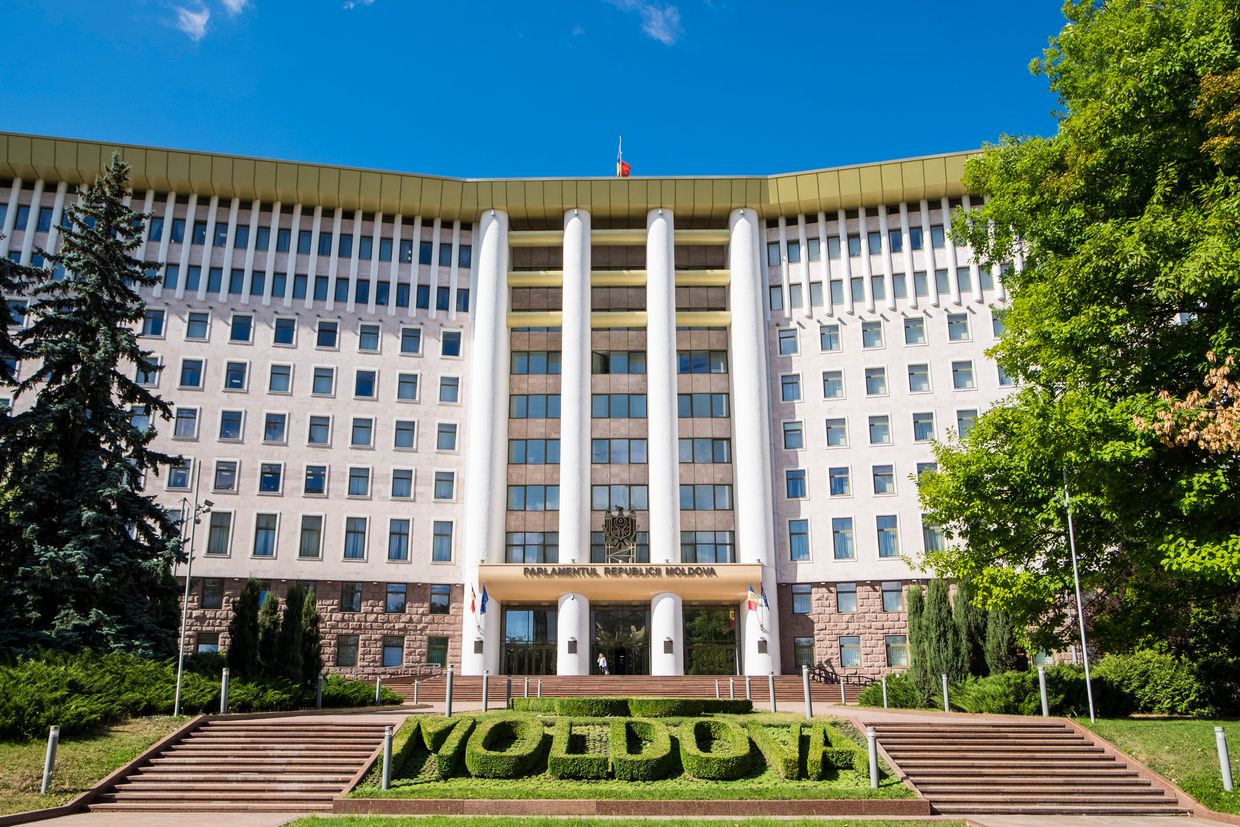
Sandu leads in 1st round of Moldovan elections, voters reject EU referendum
Editor's note: This is a developing story and is being updated.
Moldovan President Maia Sandu led the first round of the country's presidential election on Oct. 20 with nearly 39 percent of the vote, the Moldovan election commission announced.
The preliminary results are based on over 93 percent of the tallied votes.
If no candidate wins a majority, a second round of voting will take place on Nov. 3. Sandu will likely face off against her main competitor, Alexandr Stoianoglo, who captured approximately 28 percent of the vote in the first round.
Moldovan voters also rejected enshrining the country's path to European Union accession, with over 52 percent voting against the amendment in a referendum held alongside the presidential election.
The election results have been tainted by allegations of Russian interference, with Moldovan lawmakers claiming that Moscow spent millions of dollars in a campaign to unseat Sandu and vote down the EU referendum.
Tensions between Moscow and Chisinau have been mounting since February 2022 amid fears that Russia's war in Ukraine may spill into Moldova via Transnistria, an unrecognized breakaway territory occupied by Russian troops since 1991.
The pro-Western incumbent, Maia Sandu, has previously accused Moscow of plotting to overthrow her government in an attempted coup.
Throughout the current election, allegations of Russian meddling continuously surfaced, with pro-Russian oligarch Ilan Shor accused of trying to influence voters to oppose Sandu. The Kremlin's efforts are part of a broader attempt to undermine Moldova's pro-Western leadership in the country.
Moldovan authorities have said that over $15 million in Russian funds have reportedly been funneled to over 130,000 Moldovans, with voters instructed on how to vote in the upcoming election. Shor, a Moldovan-Israeli tycoon, was accused of laundering the money and orchestrating the network, despite his political party being banned.
Moldova's state-owned broadcaster reported on Sept. 28 that vandals had splashed paint across the entrance of its building in the capital city of Chisinau. This incident occurred a day after police attributed similar acts to a group trained in Moscow with the aim of destabilizing the elections.
The U.S., U.K., and Canada warned of potential Russian interference in Moldova's elections in a joint statement issued on June 13.
"If Russia's election meddling proves unsuccessful in Moldova, there is reason to believe Moscow will work to incite protests," the statement said.
Shortly after the warning, Sanda approved changes to the country's treason laws, allowing some wartime treason laws to apply to peacetime, as well as extending punishments and creating a new category of laws for assisting a foreign state.
Moldova launched EU accession talks in Luxembourg on June 25, the same day that Ukraine began its long-awaited membership negotiations. The Oct. 20 referendum, if passed, would have amended Moldova's constitution to formally include the country's accession to the EU.














